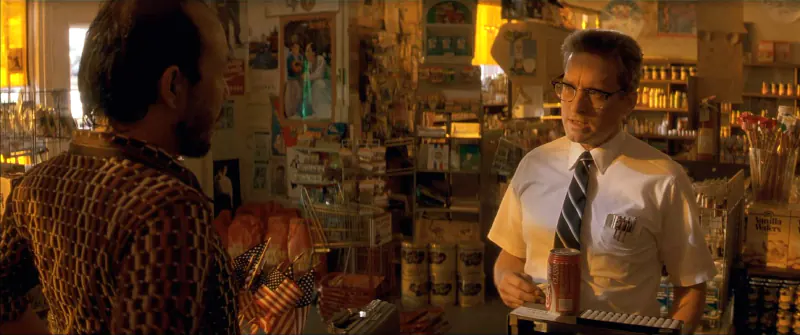The Straw That Broke D-Fens' Back
The eighties may not have been the greatest decade for movies, but Joel Schumacher brought some light into it for me. An adolescent at the time, I felt as if St Elmo’s Fire (1985), The Lost Boys (1987) and Flatliners (1990) were made just for my generation (and a bit for Kiefer Sutherland, too).
Because of their relatively high concept, some of these medium budget movies had a massive impact, and Schumacher could just keep going on. He was given the Batman franchise with the Akiva Goldsman scripted Batman Forever (1995) and Batman and Robin (1997), which weren’t necessarily great movies, but they still made their blockbuster budgets back. Schumacher has always been flexible in the material he picked. Teen angst, fantasy, war or thriller, he usually delivers a satisfying and cinematic result, at a modest production cost.
JOEL OF ALL TRADES
Another great example of this ability to bring decent production values at an independent budget level, was Phone Booth (2002), a project that rested on Hitchcock’s shelf for a long time. With Schumacher at the helm, the script was updated and delivered to the screen with dazzling style and dialogue. I have always found this contained thriller an inspiration, and a true celebration of audience-driven independent filmmaking.
Schumacher - now in his seventies - has remained agile, moving with the taste of the times. Some of his more recent credits saw him join the dignitaries on the directing stable of Netflix’ House Of Cards.
CITY OF DEMONS
Falling Down (1993) shows Schumacher just as comfortable on the streets of New York in Phone Booth, as in the suburban sprawl of Los Angeles. In fact this is one of my two favourite nineties movies when it comes to portraying the city of angels, often using gorgeous long lens shots, against an ominous soundtrack.
No matter how sexy on screen, Los Angeles in Falling Down is not a happy city. Protagonists and antagonists all fight their own demons. Robert Duvall, as the proverbial fin de carrière cop, catches the baddy at the end; yet all through the movie he pays a heavy price. For once, the cop is not the hero. Central to the movie is the anti-hero of D-Fens, played by Michael Douglas, who turns in a landmark performance.

DEVIL’S ADVOCATE
D-Fens represents the disgruntled Angelino, who is mad as hell, and he is not going to take it anymore. Only, D-Fens’ anger is of the not-so-pc kind. In our movie moment, a Korean shopkeeper refuses to break a dollar for his customer’s phone call, and D-Fens explodes like a nail bomb in slow motion. While taking the shop down, D-Fens hurls insult after insult at the poor shopkeeper, who is hiding behind the counter.
This is an important scene in the movie, as it feels like the first watershed in D-Fens’ steep downward descent, referenced in the movie title. The scene opens with the Korean topping up the till, proving he definitely doesn’t lack small change. However, he may be sick of customers entering his shop without buying. So don’t push his buttons. This leaves us with the dramatic question for this scene: “who of these two men is more p***ed off?”
Karel Segers
Karel Segers wrote his first produced screenplay at age 17. Today he is a story analyst, script editor and producer with experience in rights acquisition, script development and production. His
screenwriting classes have trained writers in Australia, Europe, Asia and the Middle East, and his clients include international award-winning filmmakers as well as three Academy Award nominees.
Karel is the founder of
The Story Department and he ranks in the world's Top 10 of most influential people for screenwriting on Twitter.